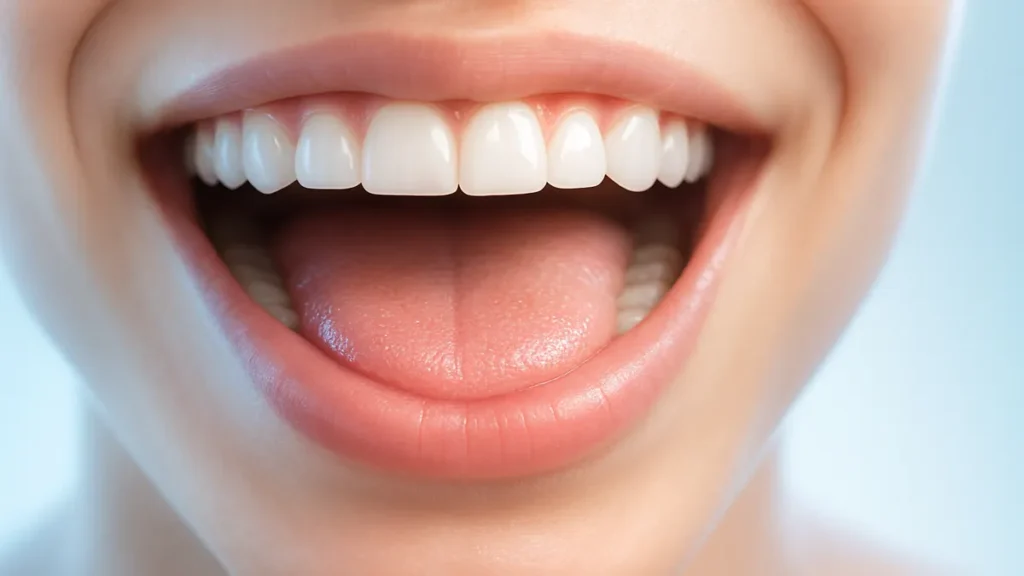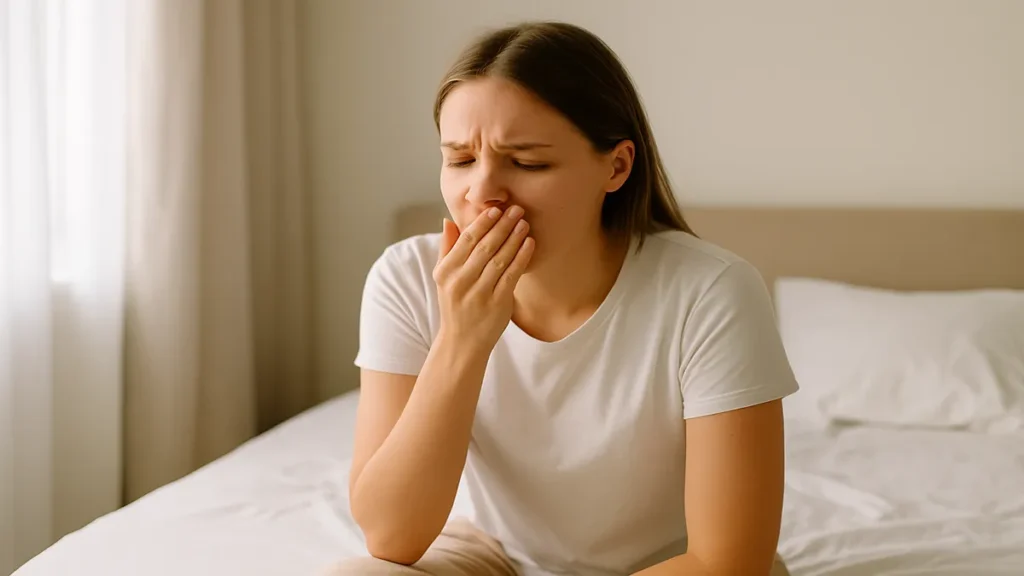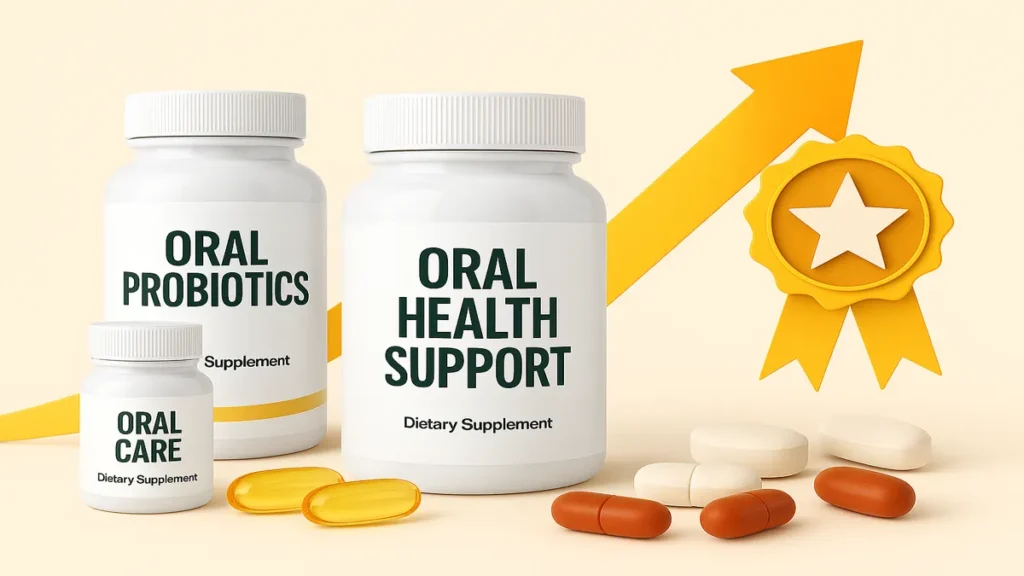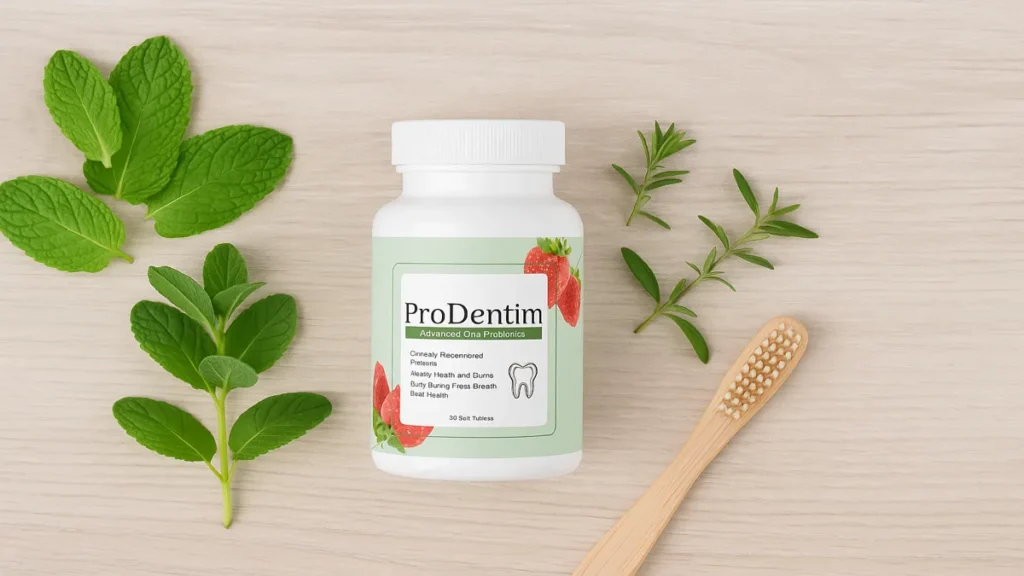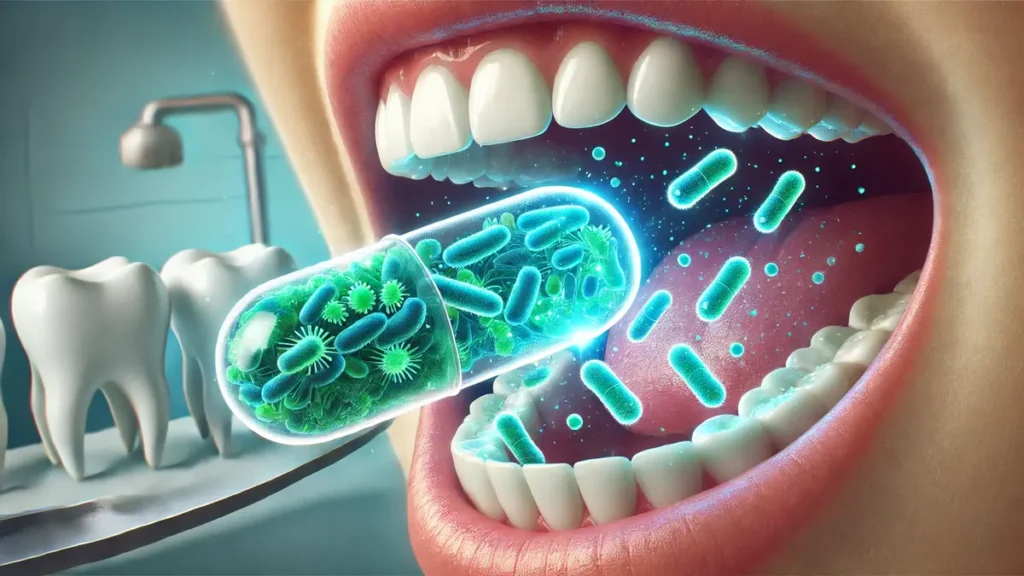
How to fix bad breath permanently — that’s what you’ve been searching for, right?
You follow the rules: brushing twice a day, flossing regularly, even rinsing with the strongest mouthwash on the shelf. But still, the problem lingers. Morning breath that won’t fade. A sour taste that creeps in by noon. That awkward hesitation when someone leans in close.
If this sounds familiar, you’re not alone. Many people struggle with the same issue, despite doing everything “right.” The truth is, bad breath isn’t always caused by poor hygiene. More often, it stems from a deeper imbalance in your oral microbiome — the community of bacteria in your mouth.
When this ecosystem is out of sync, even the best dental routine won’t be enough. But with the right habits, you can restore balance, support healthy saliva, and eliminate odor at the source — naturally and for good.
This guide walks you through a proven, realistic plan to finally solve the problem from the inside out.
👉 Want long-term relief? See our top-rated oral health supplement guide.
Why Bad Breath Keeps Coming Back (Even With Good Hygiene)
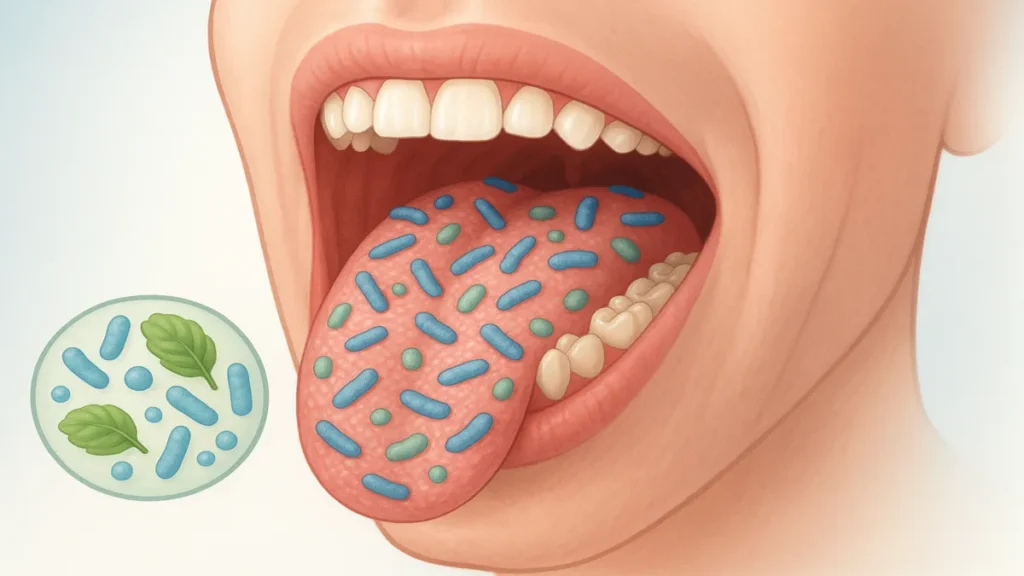
You follow the rules. Clean teeth, fresh rinse, solid habits. But the breath issue lingers. Quietly. Repeatedly. And it’s frustrating — because you’re doing everything right. And yet, the bad breath returns — sometimes within hours.
That’s because the real cause often lies deeper than your routine. Most chronic bad breath comes from anaerobic bacteria — microorganisms that thrive in low-oxygen areas like the back of your tongue or the folds near your tonsils. These bacteria break down proteins and release sulfur compounds, which produce that foul, egg-like smell.
Worse, these bacteria are smart. They form sticky biofilms that resist rinses and brushing. Unless you disrupt their environment, they keep coming back.
Another common issue is dry mouth. Without enough saliva, your mouth can’t naturally wash away food particles or rebalance its pH. This creates the perfect breeding ground for odor-producing microbes. And yet, many people don’t realize that dehydration, medications, alcohol, or simply breathing through the mouth while sleeping can trigger this problem daily.
Let’s not forget the tongue. It’s one of the most overlooked areas in oral care. If you’re not cleaning the surface of your tongue, you’re leaving behind a layer of decaying bacteria that no toothpaste can fix.
Then there’s the role of habits: sugary snacks, acidic foods, poor sleep, or even nasal congestion can all make things worse. The truth is, traditional products only mask the symptoms — they don’t fix the imbalance at the root of the problem.
That’s why solving bad breath permanently requires a smarter approach: one that supports your natural defenses, restores microbial balance, and makes your breath clean from the inside out.
Daily Habits That Fix Bad Breath Permanently
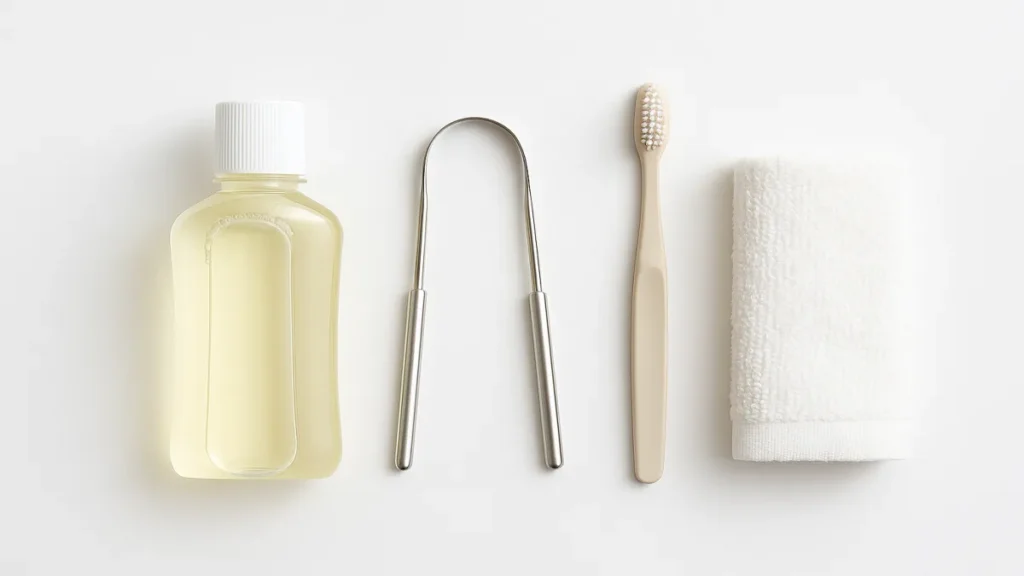
If bad breath keeps coming back, it’s not just about cleaning — it’s about how you clean, when you clean, and what supports your mouth throughout the day. Let’s look at three daily strategies that can make a lasting difference.
Clean Deeper Than Your Teeth
Brushing is essential — but it’s just the beginning. The real source of chronic odor often lives on your tongue, near your tonsils, and inside your sinuses.
Start with tongue scraping every morning. This simple habit removes the white coating that harbors odor-producing bacteria. Use a metal scraper for better results than your toothbrush.
Next, try a gentle baking soda rinse once a day. It helps neutralize mouth acidity, reduces bacterial growth, and keeps your oral environment balanced. Just don’t overdo it — once daily is enough.
If you breathe through your mouth, especially while sleeping, consider using a nasal rinse or saline spray before bed. When you restore nasal airflow, you reduce dryness — and that limits the bacteria that cause bad breath.
Smart Hydration Habits
Dry mouth is one of the fastest ways to trigger bad breath. So your hydration routine matters more than you think.
Drink plenty of water, but also add electrolytes when needed — especially if you consume coffee, tea, or alcohol. These drinks dehydrate the body and reduce saliva production.
Also, avoid sleeping with your mouth open. If you wake up with a dry tongue or bad breath, try sleeping on your side or elevating your head slightly. It can help promote nasal breathing during the night.
For extra support, add herbal teas like chamomile or fennel before bed. They naturally stimulate saliva and calm digestion, both of which reduce oral odors.
Adjust the Timing of Your Routine
When you clean your mouth is just as important as how.
Brush your teeth after breakfast, not before. Doing so helps remove food particles and bacteria rather than brushing on an empty mouth. Always finish with tongue cleaning.
At night, make your final oral care step the last thing you do before bed — not 30 minutes earlier. This leaves no window for new bacteria to grow before sleep.
Finally, avoid late-night snacks, especially if they’re sugary or high in carbs. These foods ferment while you sleep and fuel bacteria growth — a guaranteed recipe for morning breath.
How Balancing Your Oral Microbiome Helps Eliminate Bad Breath
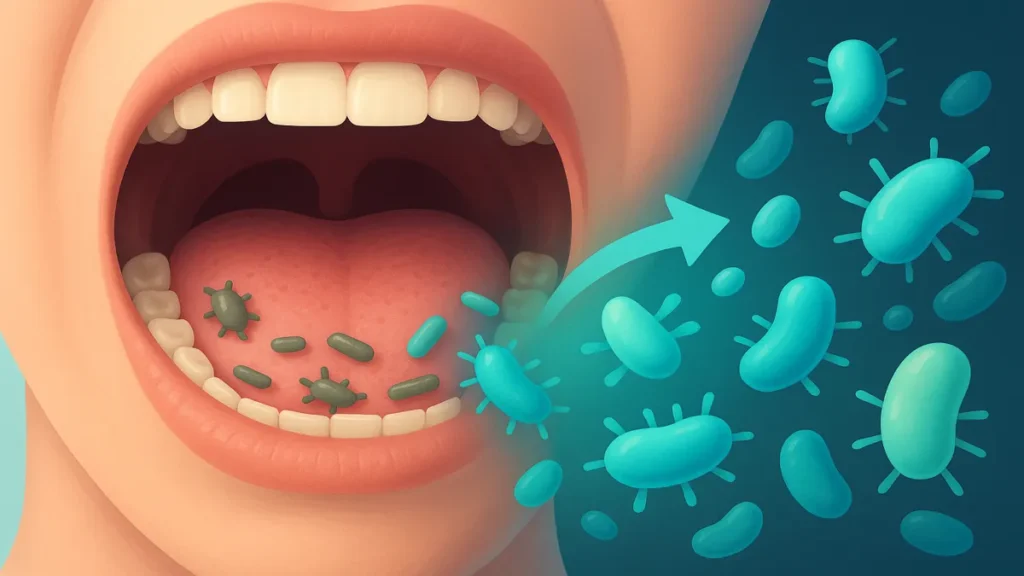
Most people think bad breath is caused by food or poor hygiene. But in reality, the problem runs deeper — it starts with the balance of bacteria inside your mouth.
Your oral microbiome is a delicate ecosystem. It contains both good bacteria, which protect your mouth, and bad bacteria, which release foul-smelling compounds. When this balance tips — due to stress, diet, dry mouth, or antibiotics — the harmful strains multiply. That’s when breath odor becomes chronic, even if your hygiene seems perfect.
Brushing and rinsing help remove surface bacteria. But they don’t rebuild the protective community that keeps odor in check. That’s why fixing bad breath permanently requires a deeper strategy.
You need to restore the right bacterial strains — especially those that naturally fight sulfur compounds and support gum health. This doesn’t just freshen your breath short term. It builds long-term resilience against odor and inflammation.
Once balance returns, your mouth works with you — not against you. Saliva flows better. Odor fades. Your breath feels consistently clean, even after sleeping or eating.
👉 Discover microbiome-friendly solutions in our complete oral health guide — tested and selected for long-term results.
Foods to Avoid (and Eat) to Cure Bad Breath Naturally
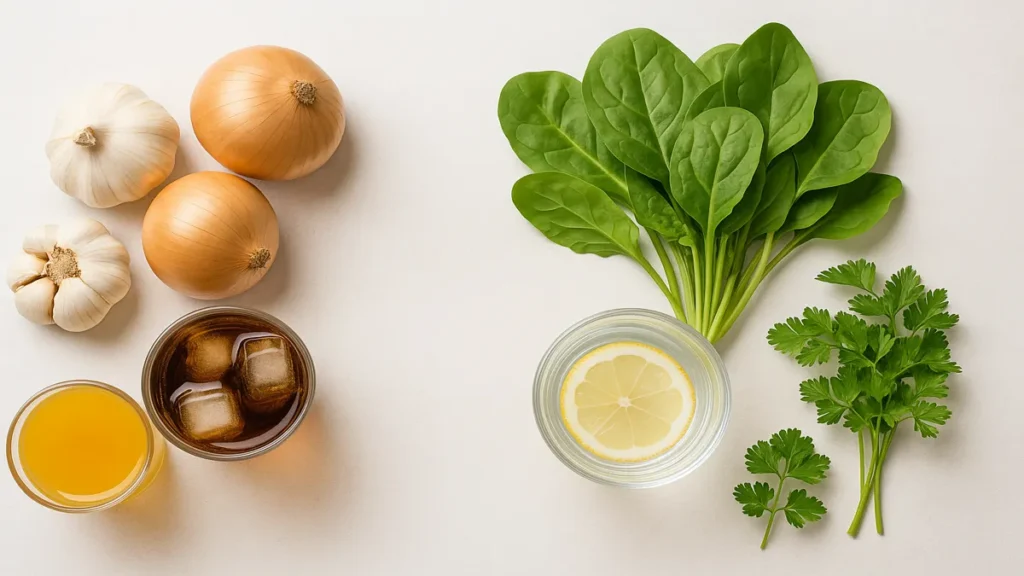
What you eat doesn’t just affect your breath immediately after a meal — it shapes the bacterial activity in your mouth all day. Some foods fuel odor-causing microbes, while others support a healthier oral environment. Knowing the difference can make a real impact.
What to Avoid
Certain foods are known triggers for bad breath. The worst offenders are sulfur-rich items like raw onions and garlic. These break down into volatile compounds that linger in your mouth — and even enter your bloodstream, causing your breath to smell hours later.
Refined sugars are another problem. They feed the harmful bacteria that release acids and gases. Every time you consume sweets, you’re essentially giving odor-causing microbes a feast.
Also, avoid drinking coffee on an empty stomach. It dries your mouth and alters pH, both of which reduce saliva — your body’s natural mouthwash. The same goes for alcohol, which disrupts your oral microbiome and leads to longer-lasting odor.
What to Add
On the flip side, certain foods help rebalance your microbiome and neutralize smells.
Start with zinc-rich foods like pumpkin seeds or chickpeas — zinc naturally inhibits the bacteria responsible for sulfur smells.
Add prebiotic foods like bananas, leeks, and artichokes. These nourish beneficial bacteria and help restore a healthier balance.
Finally, hydrate smartly. Drink unsweetened lemon water, and incorporate fresh herbs like parsley or mint. They don’t just mask odors — they stimulate saliva and support a clean mouth. Fermented drinks like kefir can also help by introducing helpful bacteria.
With a few strategic swaps, your diet can support fresher breath — naturally and every day.
What to Do When Habits Don’t Fix Bad Breath

Sometimes, even with perfect habits, the bad breath won’t go away.
You’ve cleaned your tongue, stayed hydrated, avoided trigger foods — and yet, the problem lingers. That doesn’t mean you’ve failed. It simply means your oral microbiome may need deeper support.
When harmful bacteria have taken over for too long, daily hygiene can’t always rebalance things on its own. This is where targeted solutions come in — ones designed to restore healthy bacterial levels and support long-term freshness from within.
Instead of chasing short-term fixes, focus on rebuilding your mouth’s natural defenses.
👉 Still struggling with persistent breath issues?
See our expert-reviewed supplement guide — built for real, lasting results.
Final Thoughts: How to Eliminate Bad Breath for Good

Brushing and rinsing are important — but they’re not the cure.
If you want real, lasting results, you need to go deeper. That means supporting your oral microbiome, adopting better daily habits, and fueling your body with the right foods.
Bad breath isn’t a mystery. It’s a signal — and once you understand what it’s telling you, you can finally take back control. With the right strategy, fresher breath and healthier gums aren’t just possible — they’re sustainable.
The tools are here. The science is clear. Now it’s your turn to take action.
👉 Ready to breathe easier — for good?
Get started with our full oral health comparison.
FAQ — How to Fix Bad Breath Permanently: Your Questions Answered
Absolutely — but only if you address the root cause. Covering it with mints or rinses won’t work long-term. The key is to restore balance in your mouth and stay consistent with the right habits.
Because brushing only removes surface bacteria on your teeth. It doesn’t break down the thick biofilm on your tongue, nor does it support the microbiome that controls odor in the first place.
Yes. Stress affects your whole body, including your mouth. It reduces saliva flow, weakens your immune response, and encourages bad bacteria to multiply faster — all of which contribute to bad breath.
Freshness often improves within 3 to 5 days. For deeper changes like reduced gum irritation and fewer odor relapses, it usually takes 2 to 4 weeks of consistent effort.
Not entirely — but choose wisely. Alcohol-based formulas dry out your mouth and wipe out good bacteria. Go for gentle, pH-balanced rinses that support your oral microbiome instead.



